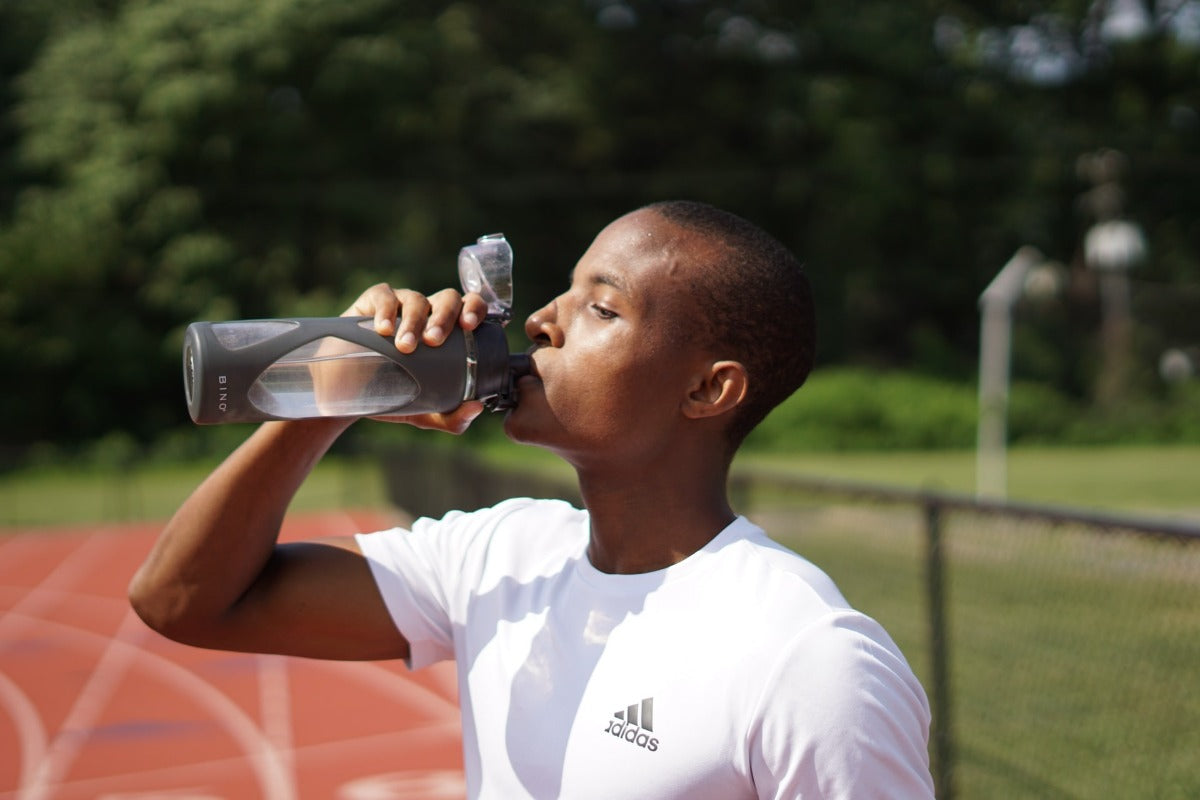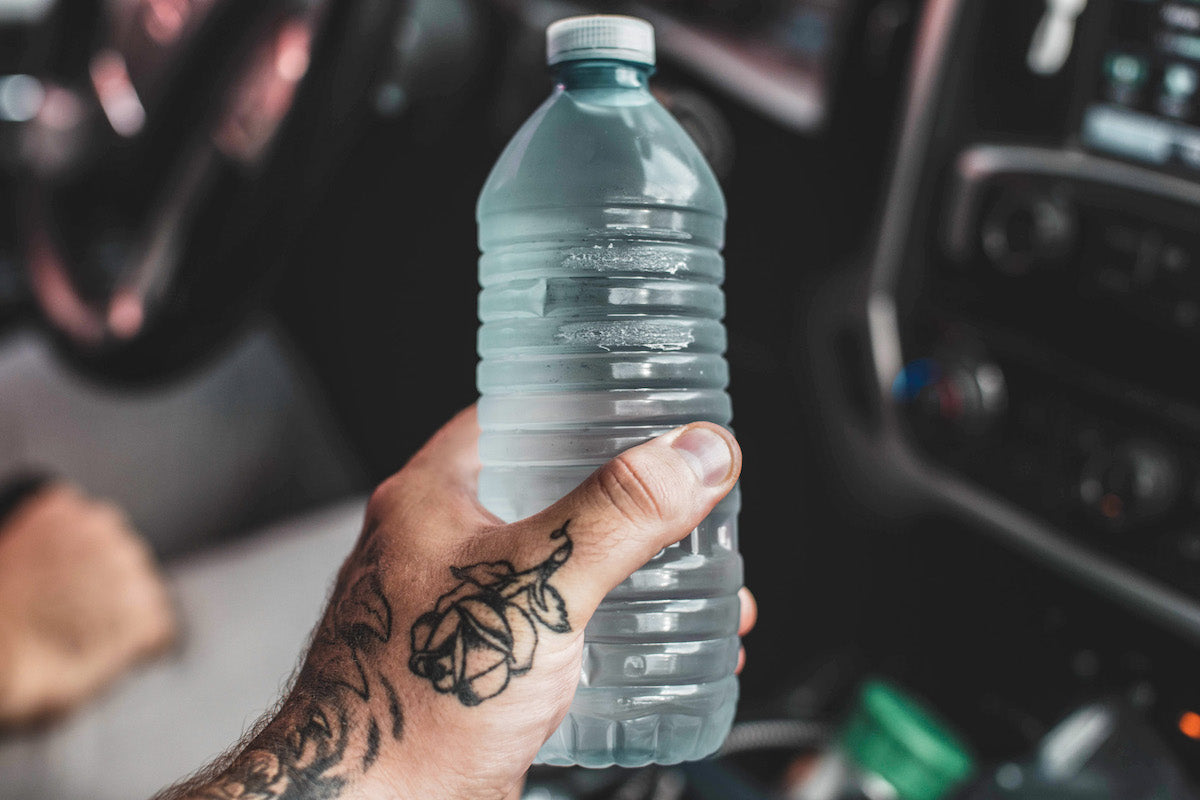Hydration = life. It really is as simple as that. Your body is mostly made up of water, comprising two thirds of a man’s body and around half of a woman’s. That feeling you get of being at home when you sink into a bath or splash into the ocean? It’s because you are made of water.
Water does too many things within your body to count. You can thank the stuff for controlling your temperature, transporting nutrients, removing waste and keeping your joints working smoothly. If you’re not adequately hydrated, your body and mind can’t perform at their highest level.
The importance of hydration grows even further if you exercise, whether that’s a bike ride around your local park or high level competitions. There’s a lot to consider, such as the benefits of coconut water and other sports drinks, and how much fluid you should be drinking before, during and after exercise.
Here, we explore the basics of hydration and why it matters, and look at why it’s so important in the context of being active.
How Much Water Should I Drink?
As a general rule, adults need to drink 2-2.5 litres of fluid a day. If an average-sized glass is 250ml, that’s 8-10 glasses a day. The exact amount your body needs depends on factors such as your age - the older you get, the more water you tend to need, as your body is able to store less of it - the climate and how warm it is, any medical conditions you may have and how active you are.
You have to replace all of the fluid your body loses every day, which includes 1.5 litres lost when you pee and around 500ml lost from sweat, more if it’s hot. You even lose fluid just from breathing.
It’s a good idea to get into the habit of sipping from a glass or bottle of water every few minutes, to provide your body with frequent hydration. Carrying water with you can also be a good reminder to drink up.
How To Stay Hydrated

It might sound easy: to stay hydrated, you drink water. But it’s not quite as simple as that. Many fluids rehydrate you, from tea and coffee, to sports drinks, soups, stews and fruit and vegetables, and what’s best to consume when you’re looking at how to rehydrate differs depending on circumstance.
Water is, of course, the obvious choice and almost always the best choice. It’s calorie-free and free-free, if you drink tap water. If you’re not a fan of straight up water in a glass, there are plenty of ways to jazz it up. From adding fruit and herbs such as mint, lemons and berries, to drinking water with plenty of ice or carbonated water, just because it’s elemental doesn’t mean it has to be boring. And you have to drink so much of the stuff, you might as well make it interesting.
Food provides much more water to your diet than you might think. Fruits such as strawberries and melon and vegetables such as cucumber and lettuce are almost all water, and even something like a banana is three quarters water. For around every 100ml of liquid our bodies get each day, 20ml of it comes from food.
It's All About The Electrolytes
Struggling to work out how to rehydrate? If you're unsure about what electrolytes are - never fear. These little minerals carry an electric charge and are great in supporting hydration, increasing our energy levels, keeping your heart beating and healthy and as a result, improving your performance.
Water naturally contains electrolytes, so consuming the recommended daily water intake will have you good to go. But if you're not a fan of water, or just want to up your intake a bit and really start feeling the benefits, try adding citrus fruits such as lemons or limes to your water for some extra flavour, or maybe consuming Spinach or Nuts - more great sources of these minerals.
Hydration And Exercise
Hydration is even more important when it comes to exercise. If you're regularly taking part in demanding physical activities, it’s very much worth considering your hydration while you’re exercising.
The Importance of Hydration
For every pound of sweat you lose, you should be drinking around a pint of fluid to rehydrate yourself. Sports drinks, which contain electrolytes and elements crucial for bodily rehydration such as potassium, salts and sugars, are very useful if you’re working at a high intensity or it’s hot weather.
At Innermost, we know a few things about supporting your hydration. The Fit Protein is a great option for post-workout rehydration, and comes with the benefits of coconut water thanks to it containing powdered coconut water. It contains high levels of potassium, a key electrolyte lost through sweating when exercising, to help combat tiredness and rebalance energy levels. Added magnesium helps to rebalance your electrolytes and Pink Himalayan Salt contains 85 trace minerals needed by the human body, including potassium and calcium.
What is Dehydration?
When you’re considering how best to stay hydrated, dehydration is a key concern. Feeling thirst one clear sign, but it’s possible to be dehydrated without experiencing thirst. A better indication is to keep an eye on the colour of your urine. If you’re drinking enough fluid, your pee should be pale yellow. Any other colour, and it’s time to start sipping.
Feeling tired and dizzy are other common signs and both indicate the importance of hydration. If you are dehydrated, drinking water is your best bet, although sports drinks can also help, especially if it’s hot and you’re sweating a lot.
Product Inspiration
If you're struggling to up your hydration and energy, a great way to add some pep to your step is The Energy Booster. Packed with Branched Chain Amino Acids (BCAAs) and Leucine to prioritise endurance and stamina, this product is packed with nutritional benefits. Pair this with the stylish Innermost Shaker Bottle and you've got yourself a great combo... if we do say so ourselves.



















